
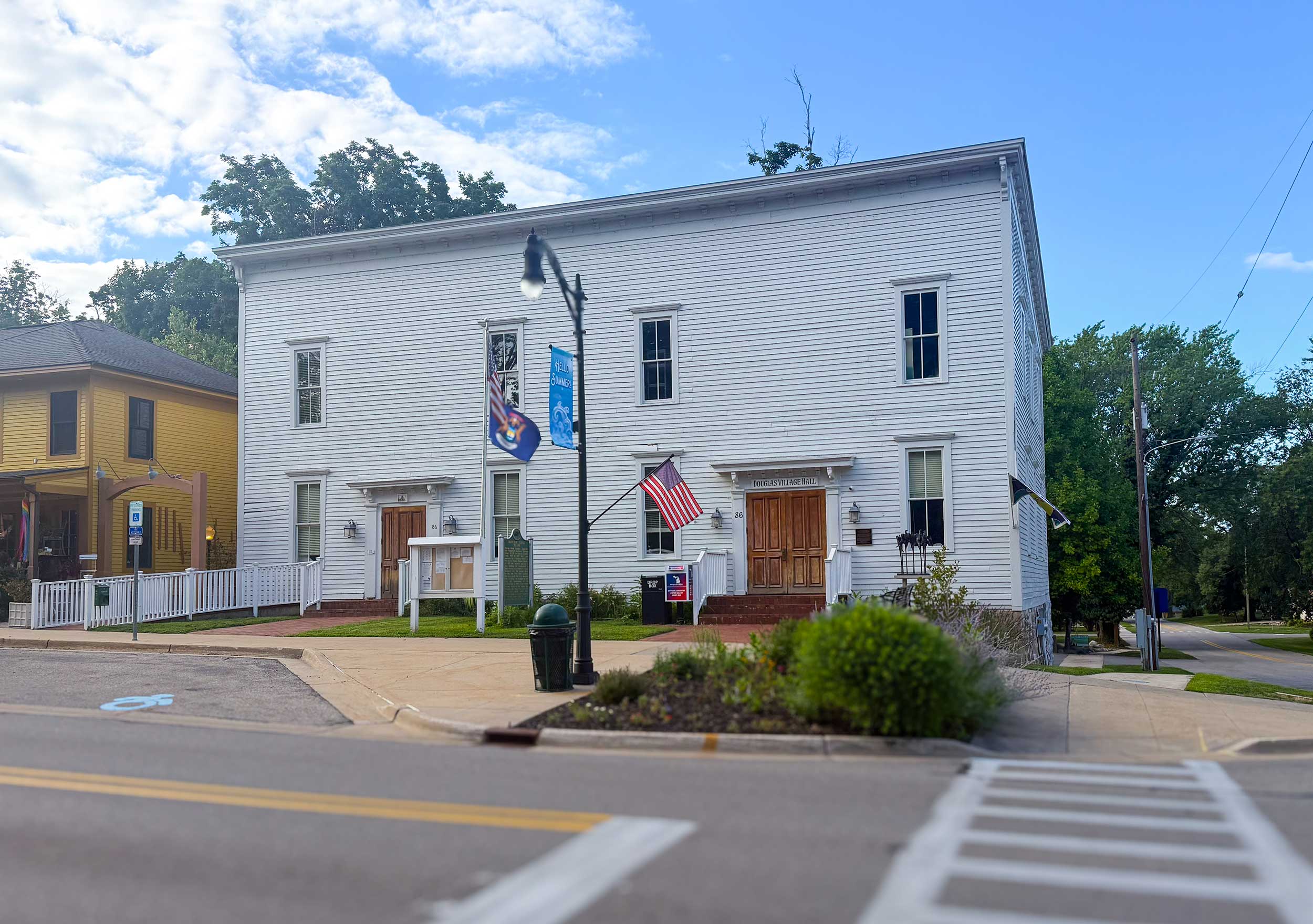
The building—located at 86 W Center Street in Douglas, a quaint beach town that neighbors Saugatuck—went up for sale this past April. The reason behind the sale is due to space. The City necessitates a larger, more updated office quarters and plans to move to 415 Wiley Road in Douglas by December 2025.
With this decision, locals have become concerned over what may happen to the building if the final buyer wishes to drastically renovate or completely demolish it. Many are wary that the building will lose its original character as a result of the sale.
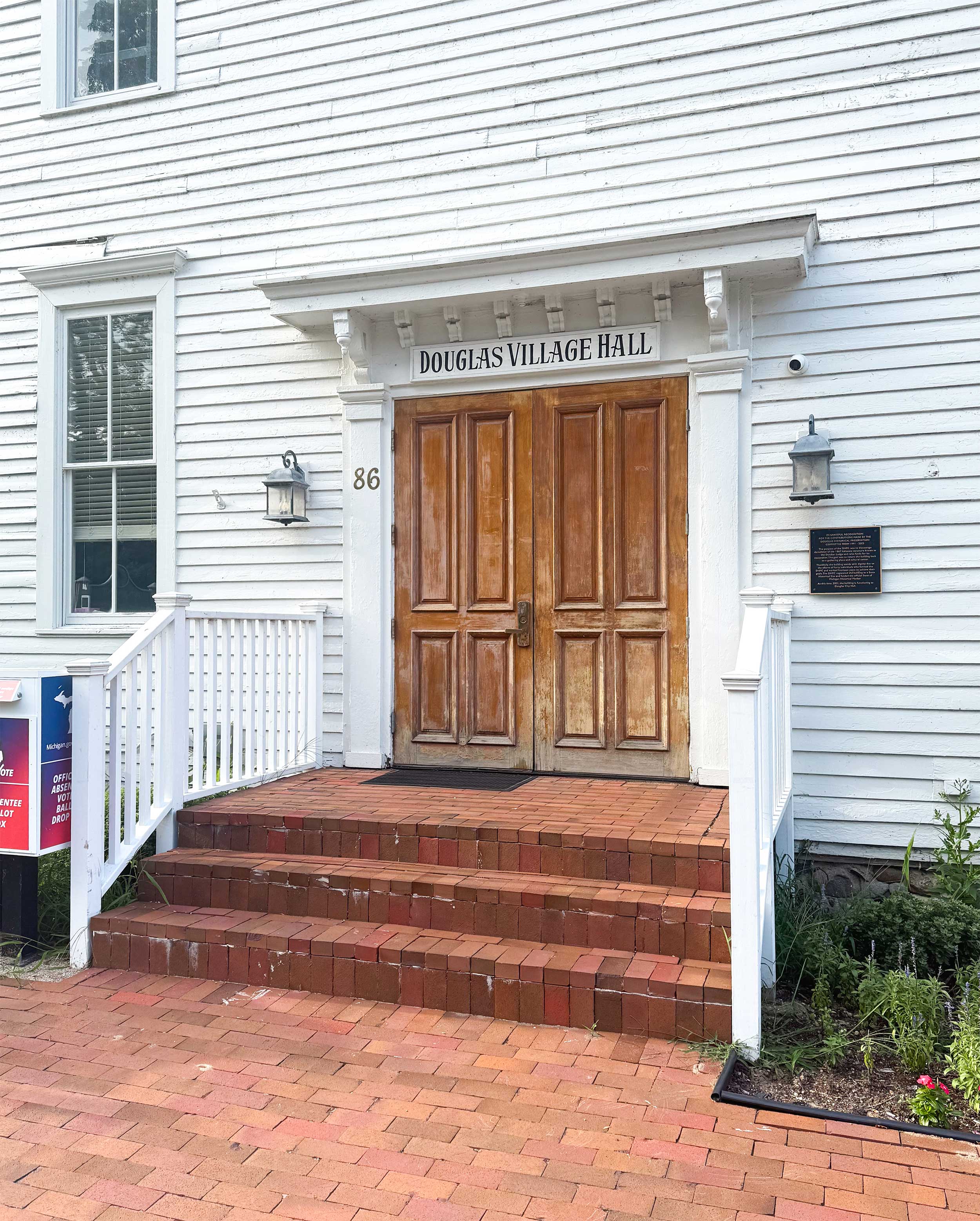
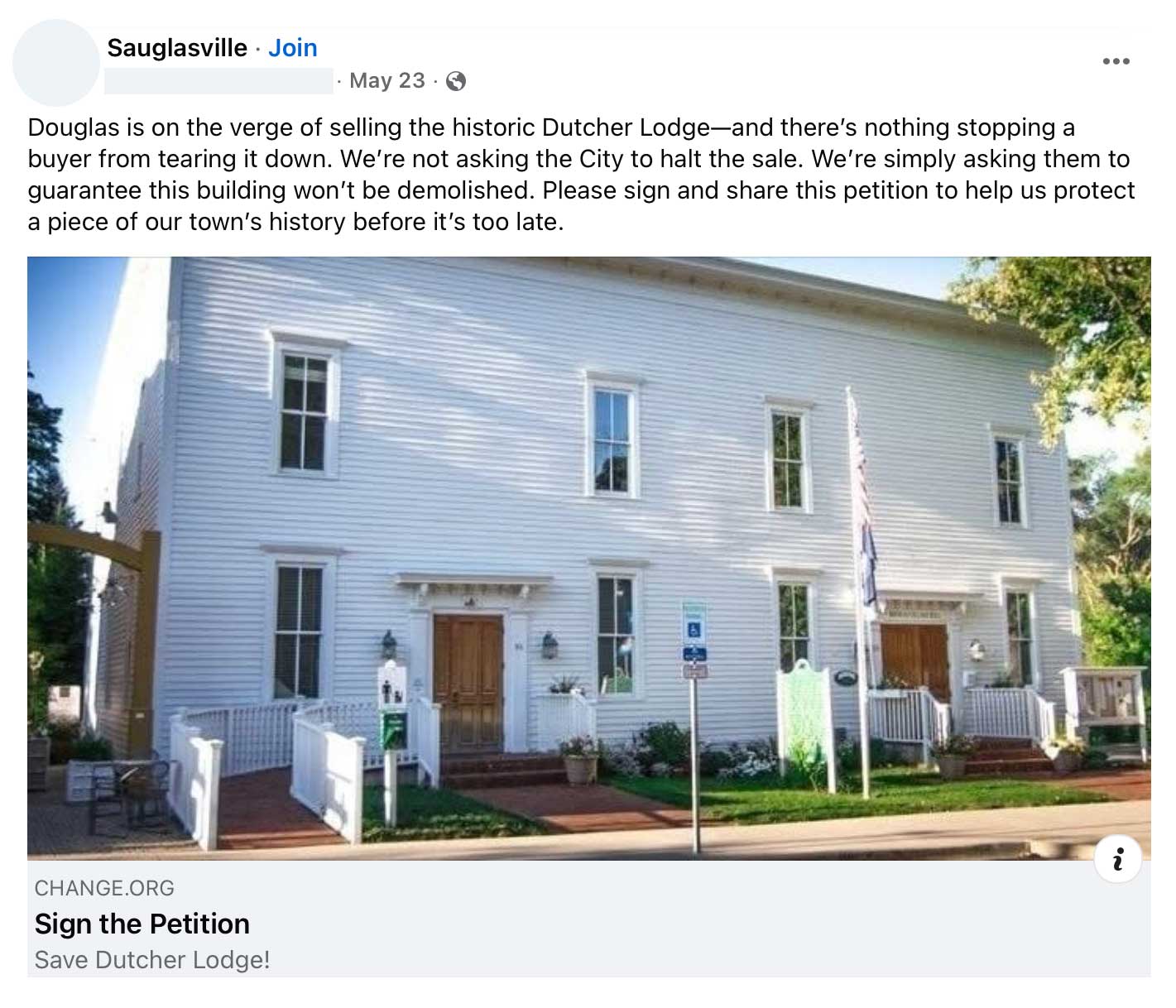
The Historical Significance
The building was previously Dutcher's Lodge, built by Freemasons in 1875. It was named after the Douglas founder's son, Thomas Dutcher, and functioned primarily as a fraternal hub—a Masonic lodge—as well as a civic center. The building served as a multi-use structure; it was a gathering place.
Somewhere along the way, it became the home of Douglas' City Hall.
What more perfect of a building to serve this purpose than the one right along Center Avenue in the heart of the city's downtown area?
It's a classic example of a historic building being used for modern civic purposes while preserving its architectural and cultural legacy. It stands as a testament to adaptive reuse—a concept where historic buildings are repurposed to meet contemporary needs without erasing their past.
The building stands as a tangible reminder of the city’s formation and the people who shaped it.
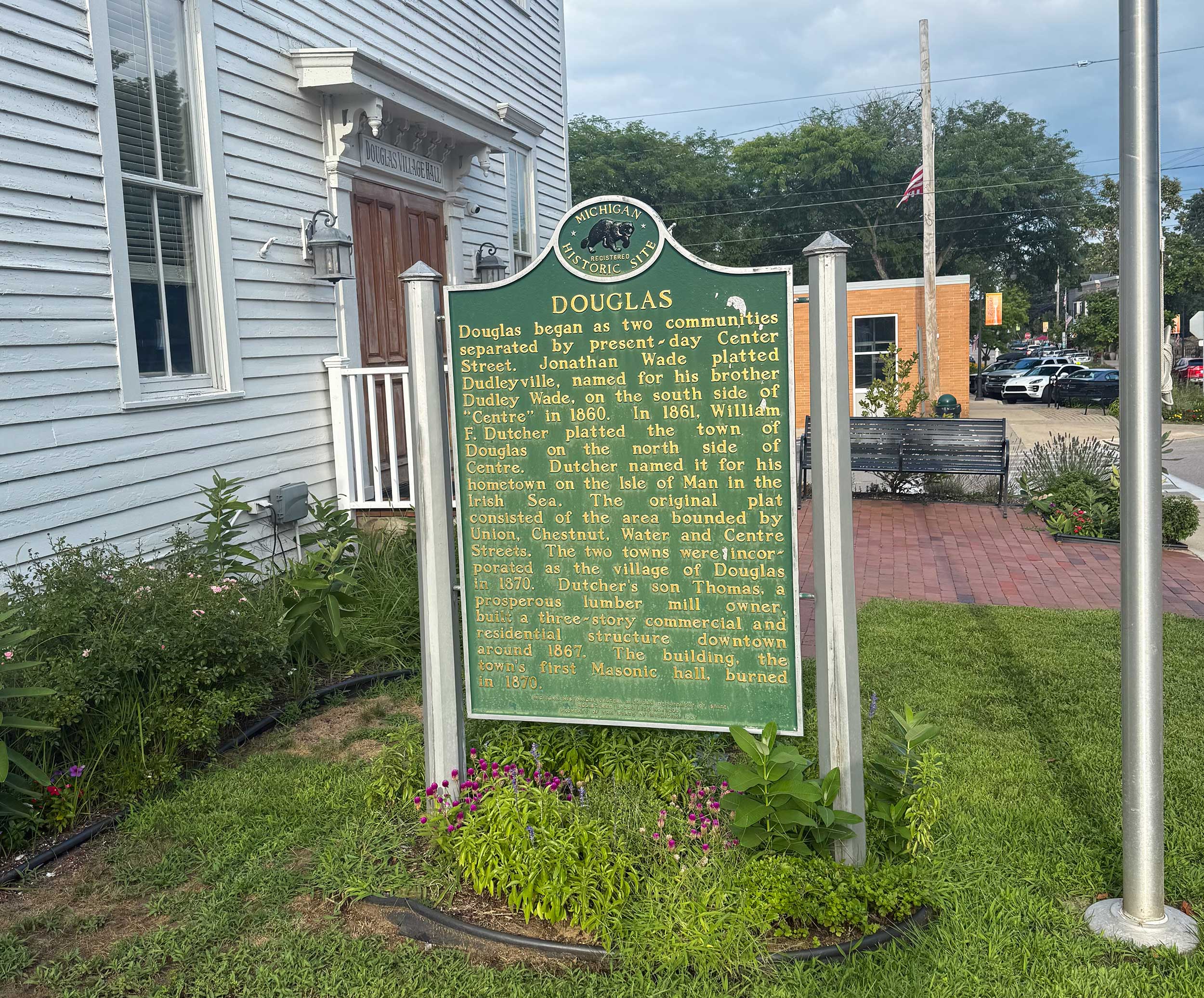
Preserving its image is critical for future generations, as the building’s original character and aesthetics reflect the very identity of Douglas.
But selling it?
If desired, the final buyer could choose to perform a drastic renovation or complete destruction to the building, risking the erasure of heritage while also endangering the community’s collective memory of where everything began.
A Previous Example
This is not a new issue.
Just down the road, The People’s Store of Douglas—a mercantile market originally built in 1890—went up for sale in 2007. The building was subsequently redeveloped, converted into a multi-use space: half-residential condominiums and half-commercial storefronts.
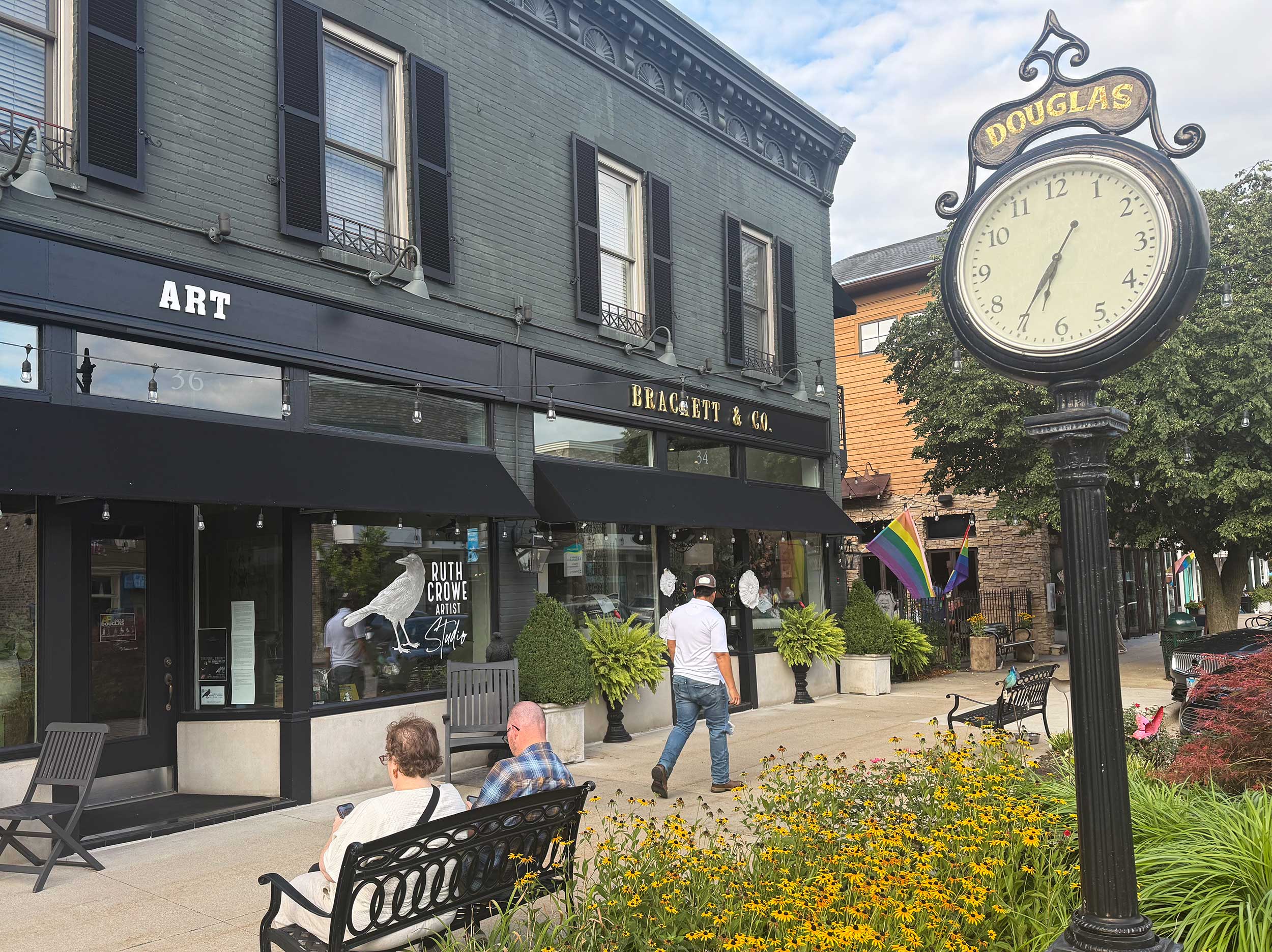
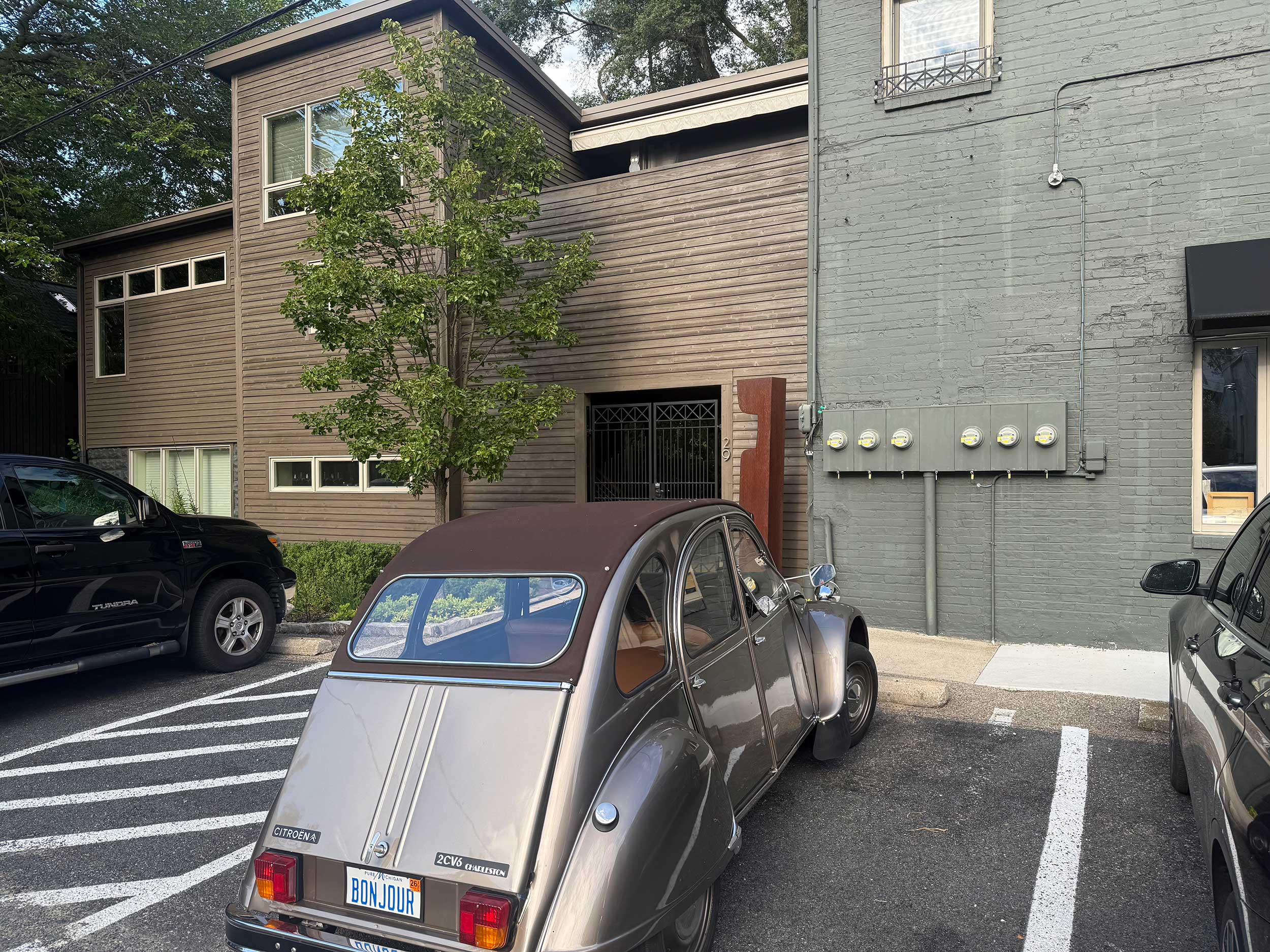
Despite the sale, the building maintained its original character—the classic clock detail, exposed brick, and courtyard-style entryways which highlight a thoughtful blend of heritage and renovation. Beyond the storefront facing the street, a residential addition was built to the back of the building. Even while having a modern touch, it still reflects the historic aesthetics of the entire building.
And so?
In March, the City adopted the 2025 Master Plan. This includes the proactive preservation of historic buildings.
The objective reads: To “carefully plan for the future uses of the City Hall Dutcher Lodge that will bring economic vitality to the downtown area, while preserving its historical significance.”
In pursuit of this, the City has issued a redevelopment covenant agreement to ensure that whoever acquires this particular property is subject to preserving the historical features of the original building. Whether it become a duplex or complex of apartments or townhomes, it is assured to maintain a similar historic aesthetic. Or, if it becomes a storefront, it is assured to maintain a similar historic aesthetic. No matter what it becomes, the building will continue to stand as a reminder of its previous uses. The aesthetics of Center Avenue will remain no matter what the building is to become.
The memorandum includes these key provisions:
No Demolition Without Consent: The building cannot be demolished without prior written consent from the City.
Preservation of Historical Appearance: Exterior changes must maintain the building’s historical look, with materials and finishes of similar quality and visual character to existing conditions.
Binding Nature: These restrictions will run with the land and are enforceable only by the City.
The City met on August 18 to discuss the agreement. The board pursued a motion to approve the restrictive covenant agreement for the sale of City Hall.

Sierra Ozolins is a West Michigan native, currently a student at Hope College. As an athlete, she is passionate about fitness—from running to weightlifting. With a interest for politics and lifestyle, she is intrigued how local culture, community, and everyday events shape the world around her—often with an iced coffee in hand and her dog by her side.